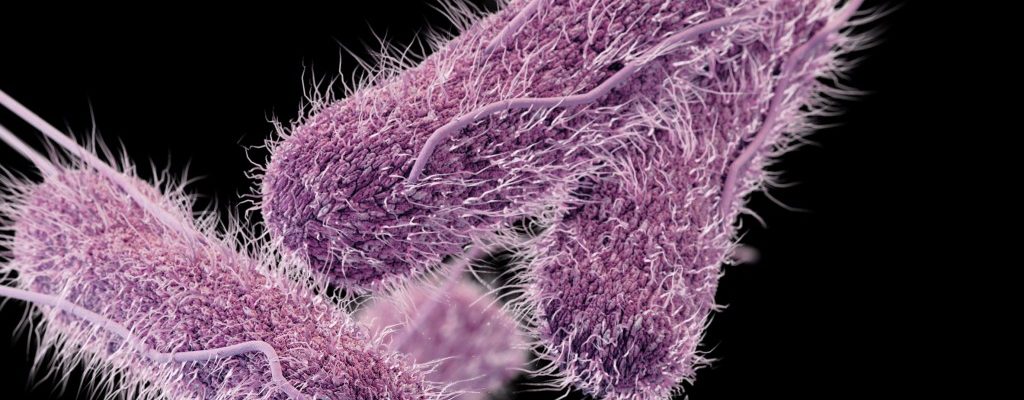Salmonella are gram-negative, rod-shaped bacilli that can cause salmonellosis, a diarrheal illness in humans.
Gram-negative bacteria usually have a cell wall composed of a thin layer of peptidoglycan, covered by a membrane.
There are over 2,300 subtypes of the Salmonella enterica bacterium, including serovars enterititis, Salmonella Agbeni, and typhimurium.
The bacteria live in the gut of infected humans and animals. Some animal and human strains can make humans sick.
Salmonella is a major cause of human bacterial infections in the United States (U.S.). According to the Centers for Disease Control and Prevention (CDC), it affects around 1 million Americans every year, leading to 19,000 hospitalizations and 380 deaths.
Salmonella is found in domestic and wild animals, including poultry, wild birds, swine, cattle, and rodents. Reptiles such as iguanas, bearded dragons, turtles, and domestic pets such as chicks, dogs and cats may harbour the bacteria. Humans are carriers of certain types of salmonella.
How Can You Prevent Salmonellosis?
- Wash hands thoroughly before, during and after food preparation.
- If you have diarrhea do not prepare food, care for hospitalized patients, the elderly or children.
- Cook ground poultry and poultry pieces to a minimum temperature of 74°C (165°F). Whole poultry must be cooked to 82°C (180°F). Cook other ground meats to 71°C (160°F). Use a probe thermometer to verify cooking temperatures.
- Place cooked foods on clean surfaces to prevent recontamination.
- Do not leave food at room temperature for longer than two hours.
- Use only pasteurized milk and milk products.
- Thoroughly cook eggs. Do not consume raw eggs or inadequately cooked eggs (over easy, or sunny side up). Do not use an egg if it appears that the shell has been broken or damaged before you handle it.
- Avoid eating raw eggs (as in homemade ice cream or eggnog). Commercially manufactured ice cream and eggnog are made with pasteurized eggs.
- Thoroughly wash fruits and vegetables before eating them.
- When buying, preparing and storing food, keep raw meats separate from fruits, vegetables, cooked foods and ready-to-eat foods.
- Reptiles have been associated with Salmonellosis; always wash your hands after handling them. Reptiles, including turtles, are not appropriate pets for children.
- Salmonella infections can be serious in infants and young children, pregnant women and their unborn babies, and older adults, who are at a higher risk for food-borne illness, as are people with weakened immune systems (such as those with HIV/AIDS, cancer, diabetes, kidney disease, and transplant patients).


